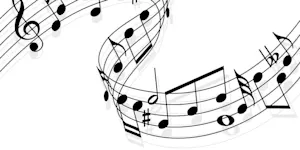What Makes This Word Tick
Hearsay — it sounds almost like listening to secrets carried on the wind. At its core, the term refers to information received from other people that one cannot adequately substantiate. A whisper here, a rumor there, it's the stuff that stories and gossip are made of, rarely seen as solid evidence in court.
If Hearsay Were a Person…
Imagine a delightful busybody, bustling around with an ear open to every conversation. Sporting a pair of reading glasses perched on their nose, they'd know everything about everyone — just don’t ask them how they know. With a twinkle in the eye, they're the friend who always knows something worth hearing.
How This Word Has Changed Over Time
Originally from the Old English "heresagen," meaning "to speak," hearsay hasn't strayed far from its roots. Over centuries, its use in legal terms solidified, transforming from everyday chatter to something far more scrutinized and sometimes dismissed in courts due to its unreliable nature.
Old Sayings and Proverbs That Use Hearsay
While there aren't many proverbs directly using "hearsay," the timeless warning "Believe nothing of what you hear, and only one half of what you see" captures the spirit perfectly. It's a gentle reminder to be skeptical of all those twinkling tales.
Surprising Facts About Hearsay
Did you know hearsay is generally inadmissible as evidence in many legal systems due to its unreliable nature? Despite this, there are many exceptions where it might still sneak into the courtroom. This word carries the weight of legal solemnity wrapped in the lightness of casual chatter.
Out and About With This Word
You'll find hearsay hanging around water coolers, in the back of taxis, and at dinner tables across the globe. It's the spice on our lips when discussing last night's scandals or the mystery of who ate the last donut in the breakroom.
Pop Culture Moments Where Hearsay Was Used
This word often features in courtroom dramas where lawyers argue over the admissibility of evidence. Shows like "Law & Order" or movies such as "A Few Good Men" depict dramatic scenes where hearsay becomes a pivotal element of the legal sparring.
The Word in Literature
Writers would sprinkle "hearsay" into tales of intrigue and mystery. Think of it darting between the pages of a good Agatha Christie novel, acting as the whispering ghost that keeps readers guessing about what’s truth and what’s just talk.
Moments in History with Hearsay
The Salem witch trials of the 17th century were rife with decisions based heavily on hearsay and fear. It drove home the dangers of relying on unverified information, resulting in tragic misjudgments.
This Word Around the World
In French, hearsay translates to "ouï-dire," carrying a similar notion of information overheard and passed along. Across languages, however, the concept of gossip and unconfirmed news remains universally understood.
Where Does It Come From?
Hearsay originates from Middle English, combining "hear" with "say." It's been whispering through the English language since the 14th century, carrying tales that may or may not be trusted.
How People Misuse This Word
Sometimes, people mistakenly use hearsay to describe any news or information from others, even if reliable. It's crucial to remember that hearsay implies a lack of trustworthy verification.
Words It’s Often Confused With
Rumor: Though closely related, rumors specifically refer to widely spread hearsay often deliberately circulated without tangible proof.
Gossip: This leans more toward casual talk or personal details rather than legal or formal statements.
Speculation: While hearsay can fuel speculation, the latter involves forming conclusions or theories without firm evidence.
Additional Synonyms and Antonyms
Synonyms for hearsay include chatter, buzz, and tattle. Antonyms might be facts, testimony, or evidence in a legal context, each implying a stronger sense of verification and truth.
Want to Try It Out in a Sentence?
"I heard through hearsay that the new cafe has the best coffee in town, but until I try it myself, I'll take that information with a grain of salt."
















